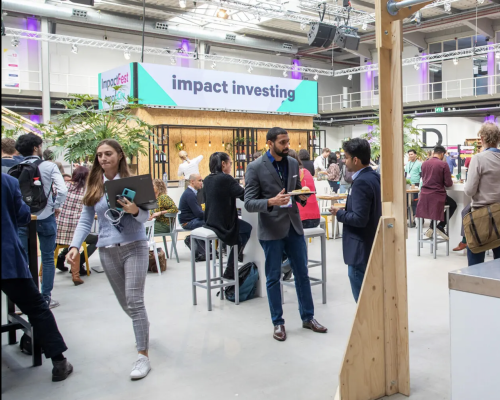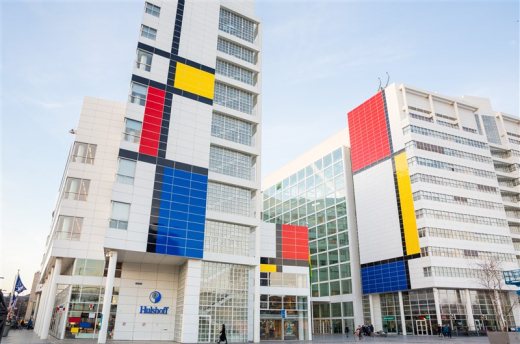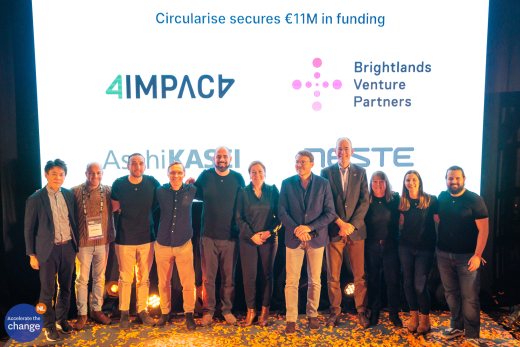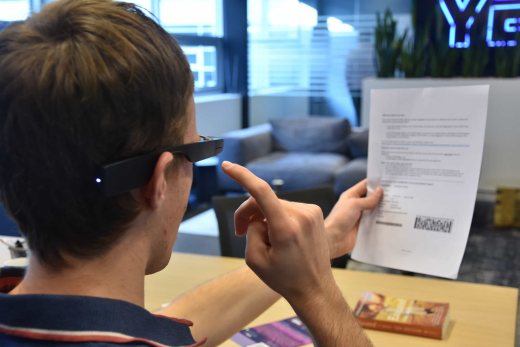The Hague, the seat of the Dutch government and home to over 200 non-governmental and intergovernmental organisations, is attracting a growing community of impact entrepreneurs, investors and talent. This group is driven by a sense of responsibility and opportunity to contribute to one or more of the UN’s Sustainable Development Goals (SDG’s). Attracted by the prospect of growing their business or career among likeminded change makers and collectively make the world a better place, they set up shop in one of The Hague’s entrepreneurial hot spots. This is not sheer coincidence, as The Hague has been very deliberate in the kind of business community it chose to actively cultivate.
ImpactCity's startup formula
As the governmental and diplomatic center of the Netherlands and hotspot for international law, justice and policy, the business community didn’t always have the full attention of the municipality. In the last decade however, the municipality of The Hague has successfully turned the tables and created an innovation ecosystem strongly focused on facilitating impact startups with developing, piloting and scaling their innovations. “We were very thoughtful about creating the right conditions for an innovative ecosystem to thrive” says Coos Santing, Program Manager of ImpactCity. “We started with establishing six important conditions for startups: Network, visibility, office facilities, money, business support and talent,” Coos elaborates. "But we have always been selective in the kind of businesses we actively facilitate and encourage, because we knew from business clusters elsewhere that such a focus will benefit the community on the longer run."
"Given our city’s heritage and profile, companies with a drive to contribute to the SDG’s are most likely to connect with the present ecosystem and flourish here."
Office facilities
ImpactCity is a program that was initiated in 2014 to house The Hague’s new economic development activities. The name of the program signifies the city’s dedication to building an impact economy. As a result of ImpactCity’s efforts and focus, The Hague currently counts a vibrant community of impact businesses at numerous thriving startup hotspots such as The Hague Tech and Apollo 14. These multi-tenant office facilities offer tailored services such as community networks and flexible rental plans to accommodate the dynamic needs of innovative start-ups. To anticipate on the growing business community, the 13.000 m2 multi-tenant building Titaan is to open its doors to accommodate impact scale-ups with 8-150 employees in 2023. In addition to flexible office spaces, business growth services, a maker-space and experience center will be available for tenants to cater to their needs as they grow their impact businesses.
Capital
To meet the need for startup capital in The Hague, numerous impact investors such as 4Impact and Draper Richards Kaplan (DRK) Foundation have settled in the city. Vouchers have been made available for companies seeking support with submitting for EU and national Dutch subsidies, and ImpactCity's own programme 'Grants for Impact' is tailored to helping promising impact startups identify and apply for available grants to fuel their growth. The Investor Readiness Programme helps impact startups increase the chances of attracting funding and the public investment funds IQCapital, ENERGIIQ and UNIIQ are headquartered in The Hague, making it among the most attractive cities for companies seeking investments.
Business support
To make informed decisions and successfully grow their business, startups typically need business support. To make this available, ImpactCity attracted the world's #1 university-affiliated incubator YES!Delft (affiliated with TU Delft), which opened a branch office in The Hague in 2019. More recently incubator PLNT Leiden, affiliated with Leiden University, opened its doors here. Since 2018, young businesses have the opportunity to develop and optimise their product together with a public launching customer through the Startup In Residence Program. ImpactCity made this California-originated program available to startups in The Hague from 2018 on. Through this programme, government organisations such as municipalities and ministries can provide a challenge for which they seek an innovative solution.
“This program is very powerful because it creates a win-win situation by encouraging the government to seek innovative solutions to meet their needs and by helping companies develop their products together with a launching customer, which increases its chances for success.”
Examples of companies that successfully participated in the Startup in Residence Program are Mapture.ai, which offers automated drone solutions to support emergency responders such as the fire brigade and Envision, which empowers visually impaired people with its visual object recognition software, which helps its users navigate and read.
Talent
To attract talent and increase research capacity in The Hague, both Leiden University and Delft University of Technology recently opened faculties in The Hague, totaling the higher education faculties to 3 academic universities and 7 universities of applied sciences, which together educate over 30.000 students in The Hague annually. Coos: “This increase in university faculties has brought many benefits to our city. Talent that studies here is more inclined to search for internships and jobs, or start a business here. But also, the university researchers are easier to approach for collaborative projects and the university research facilities enable testing and piloting in the city.”
Today, the impact ecosystem in The Hague is thriving, and the role of ImpactCity has evolved. “We sometimes struggle with defining what ImpactCity actually is, because the impact ecosystem in The Hague has grown so fast and we were not even involved in all of it. Our role has changed a lot since we first started,” Coos explains.
“But I think it is best described as a central platform that connects all parties in that ecosystem. ImpactFest, our annual event for impact business is a good example of how that role manifests. Our latest edition of ImpactFest sold out early and attracted over 2000 impact founders, investors and talent from 42 countries."
"The attention for innovative and sustainable entrepreneurship appears to be greater than ever: never before have there been so many visitors to present their solutions, pitch to investors, exchange experiences and gain knowledge,” Coos continues. At ImpactFest, The European Social Enterprise Monitor (ESEM) was launched, which is the result of European research on social entrepreneurship in 21 countries. The research demonstrates the resilience of social enterprises: 44% of social enterprises have increased revenues and grown their teams despite the COVID-19 crisis. In addition, management teams of social enterprises consist of an average of 56% women and 38% of social enterprises employ people with a great distance to the labor market.
“All indicators point towards great success for the ImpactCity program” says Coos. “The impact ecosystem is maturing and requires less and less interference from the city. New companies are founded at an increasing speed and the ‘older’ ones are growing fast. This also means that the pool of experienced entrepreneurs is growing, who can support startup founders on their entrepreneurial journey."
"These developments indicate that much more is to come from impact businesses in The Hague.”






